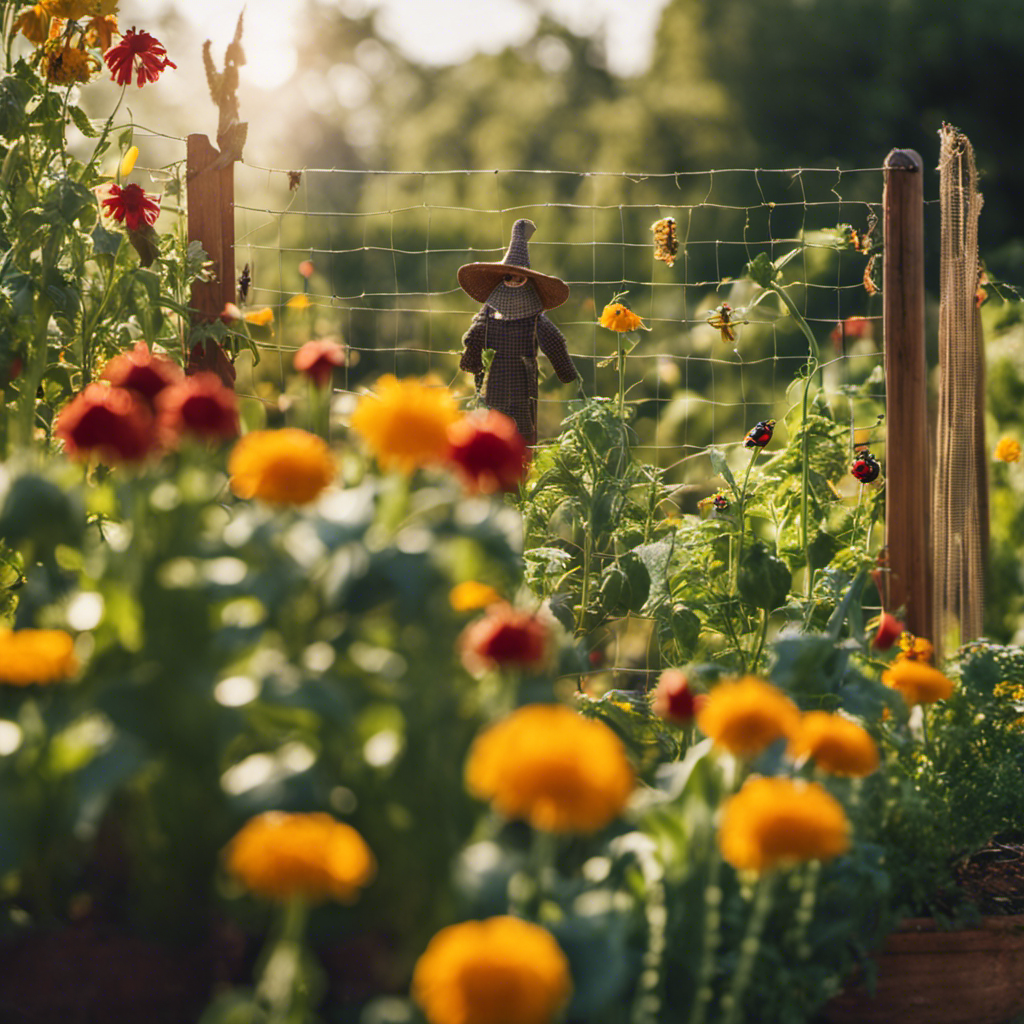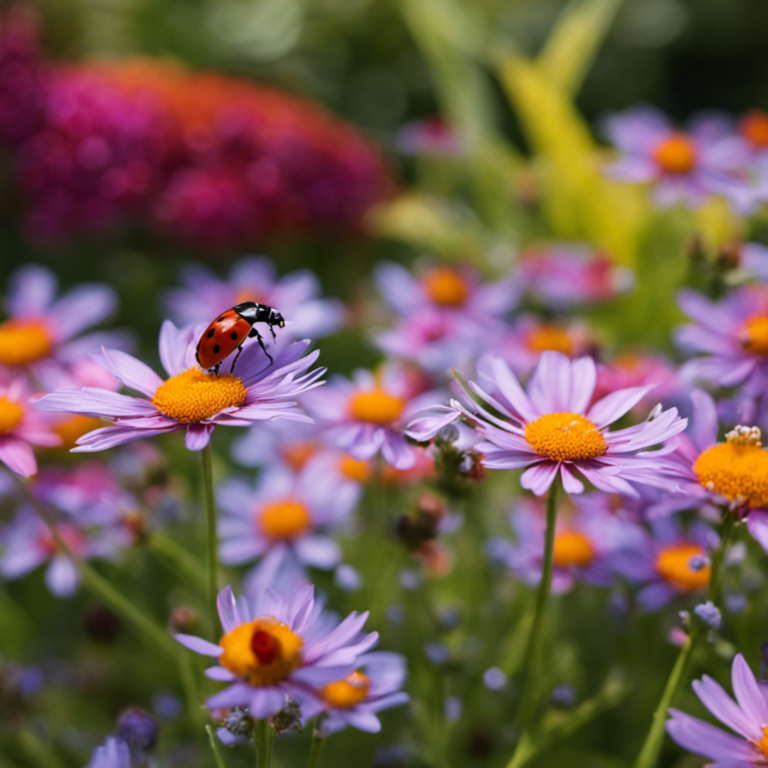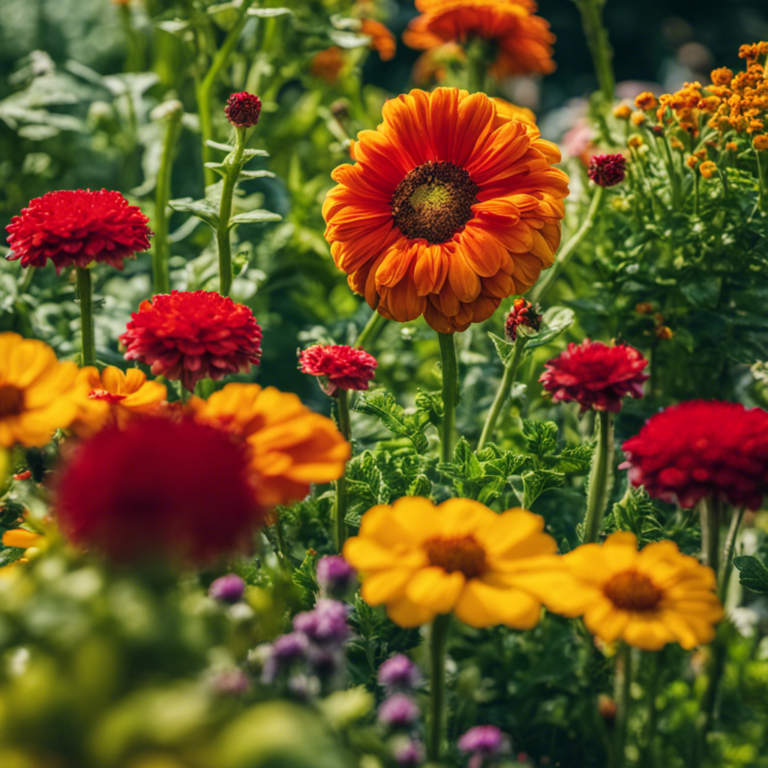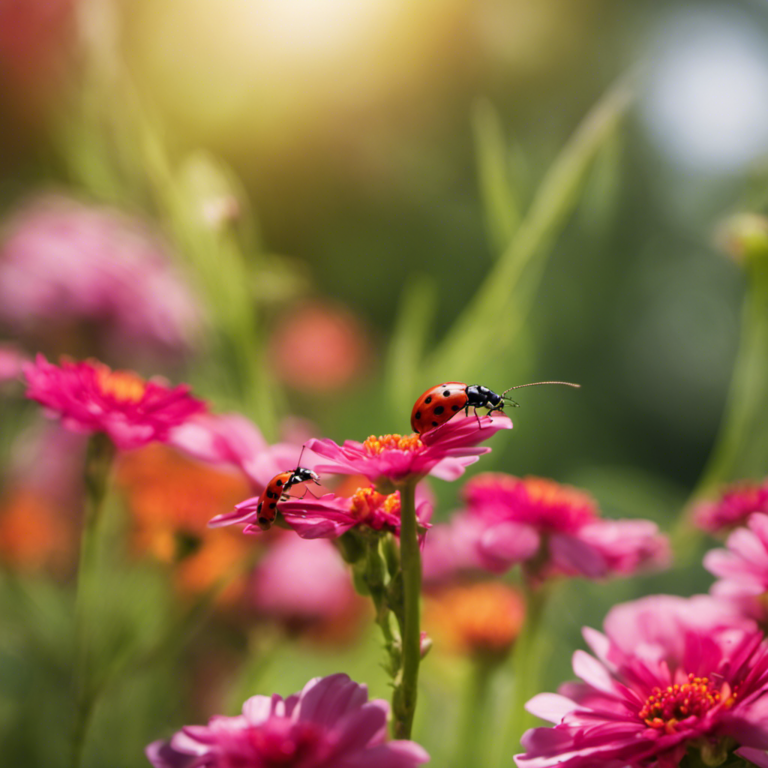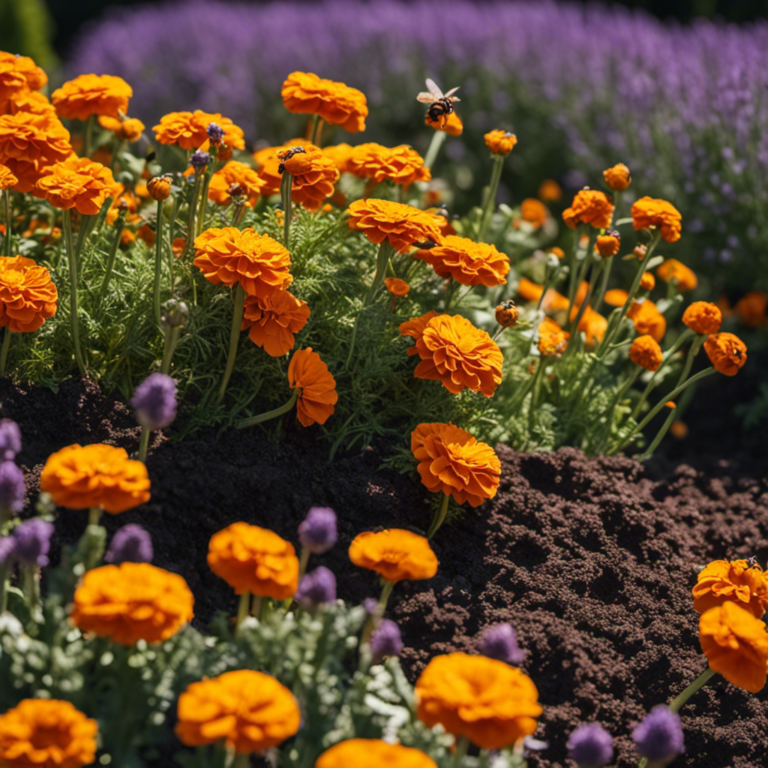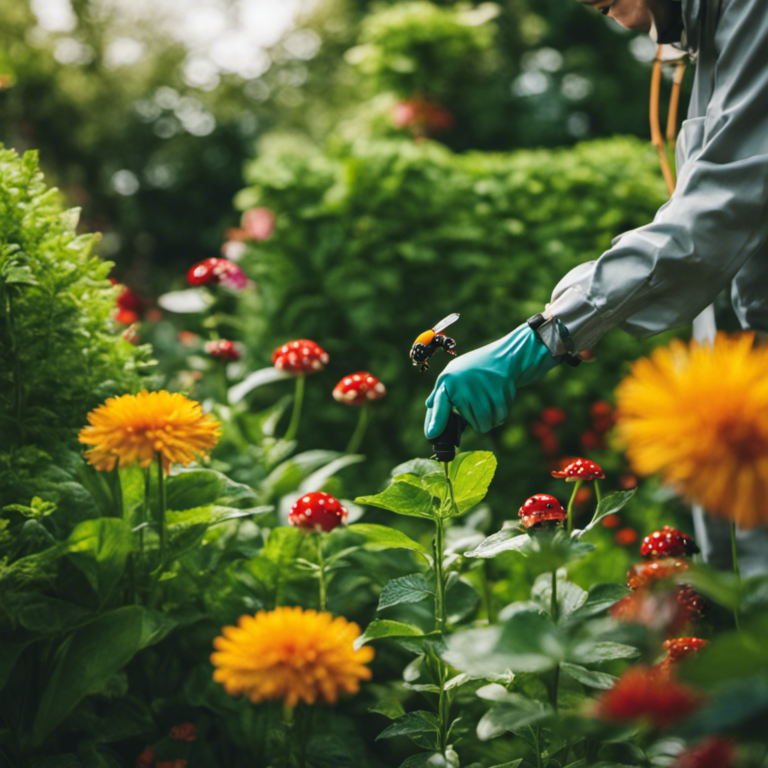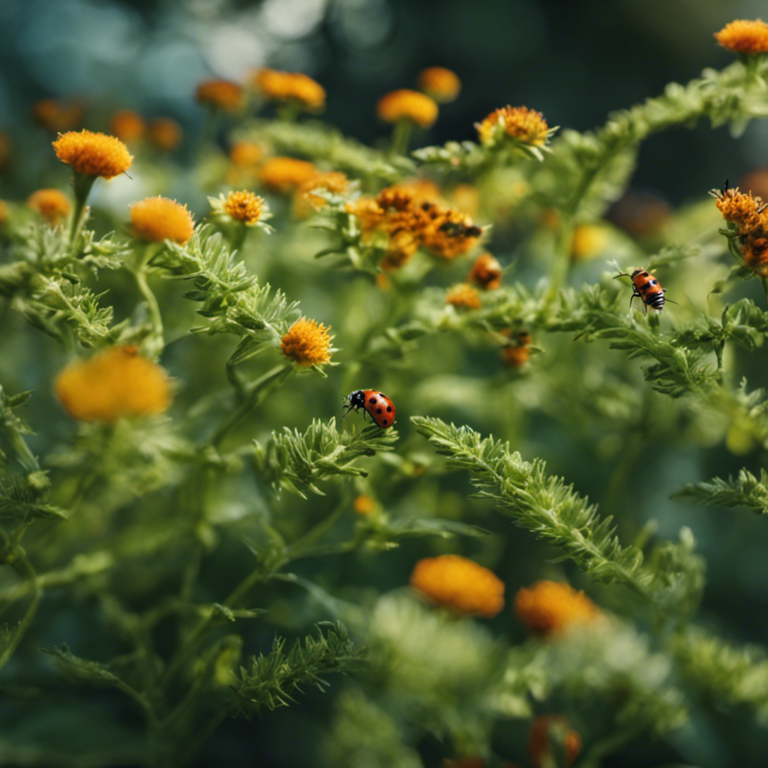Are pests causing problems for your valuable harvests? Don’t worry, gardeners! We have the eco-friendly solutions you’ve been searching for.
In this article, we present three proven methods to keep those annoying critters away. By using companion planting, biological pest control, and organic pesticides, you can safeguard your crops without harming the environment.
Bid farewell to harmful chemicals and welcome a plentiful, environmentally conscious harvest. It’s time to reclaim your garden and enjoy a feast free from pests!
Key Takeaways
Implementing these three environmentally friendly methods can significantly improve the health and productivity of your crops. Companion planting, biological pest control, and organic pesticides offer effective solutions for managing pests. Additionally, rotating your crops and using physical barriers can provide further protection for your plants. By incorporating these methods into your farming practices, you can ensure a successful harvest while preserving the natural balance of your ecosystem. Remember, prevention is key to avoiding the need for extensive remedies.
Companion Planting
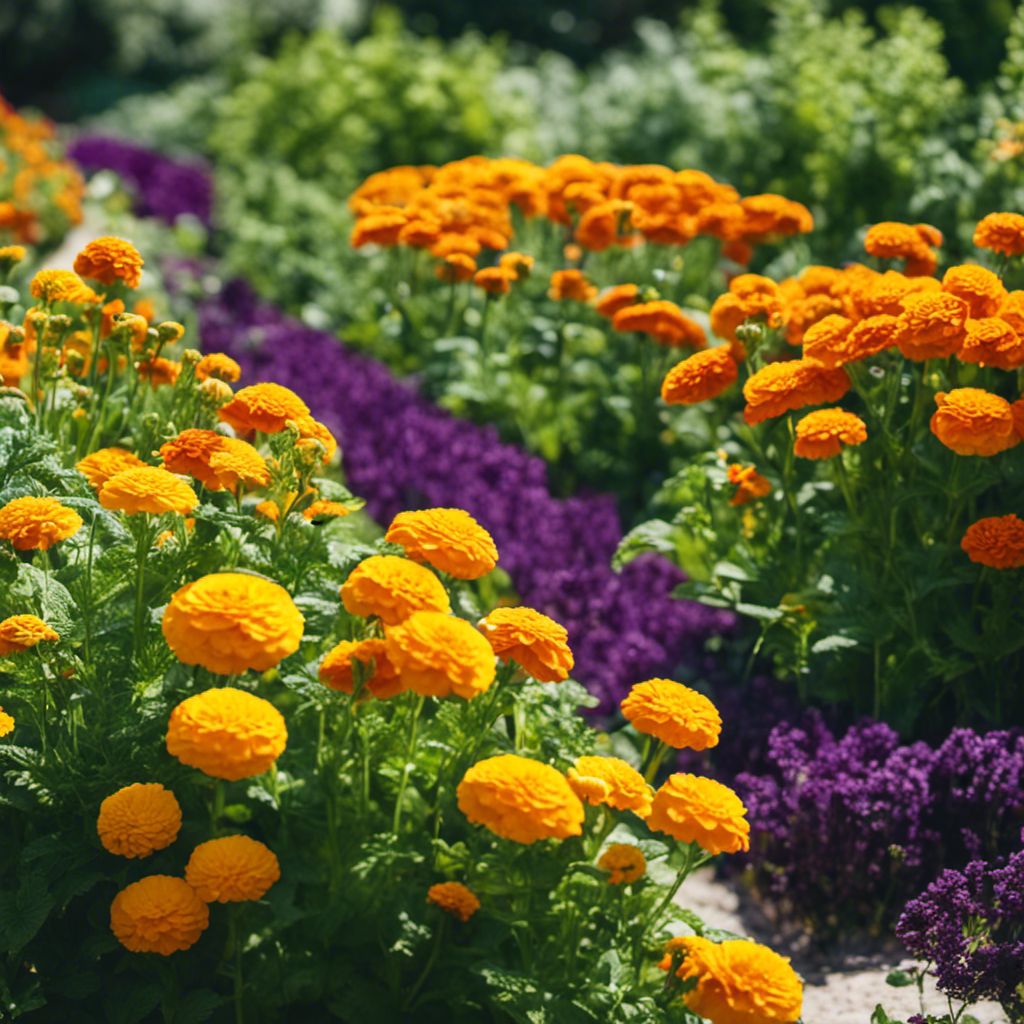
Achieving pest-free harvests can be made possible through the practice of companion planting. This method involves planting different crops together to create an environment that’s mutually beneficial and helps deter pests.
One way to do this is through intercropping, which means growing two or more crops in close proximity. By doing so, you can disrupt the life cycle of pests and prevent them from spreading.
Another advantage of companion planting is the ability to take advantage of natural pest repellents. For instance, planting marigolds alongside your vegetables can help repel harmful insects.
Additionally, selecting pest-resistant varieties of plants can reduce the need for chemical pesticides. These varieties are naturally less susceptible to pests, resulting in healthier and more abundant harvests.
Biological Pest Control
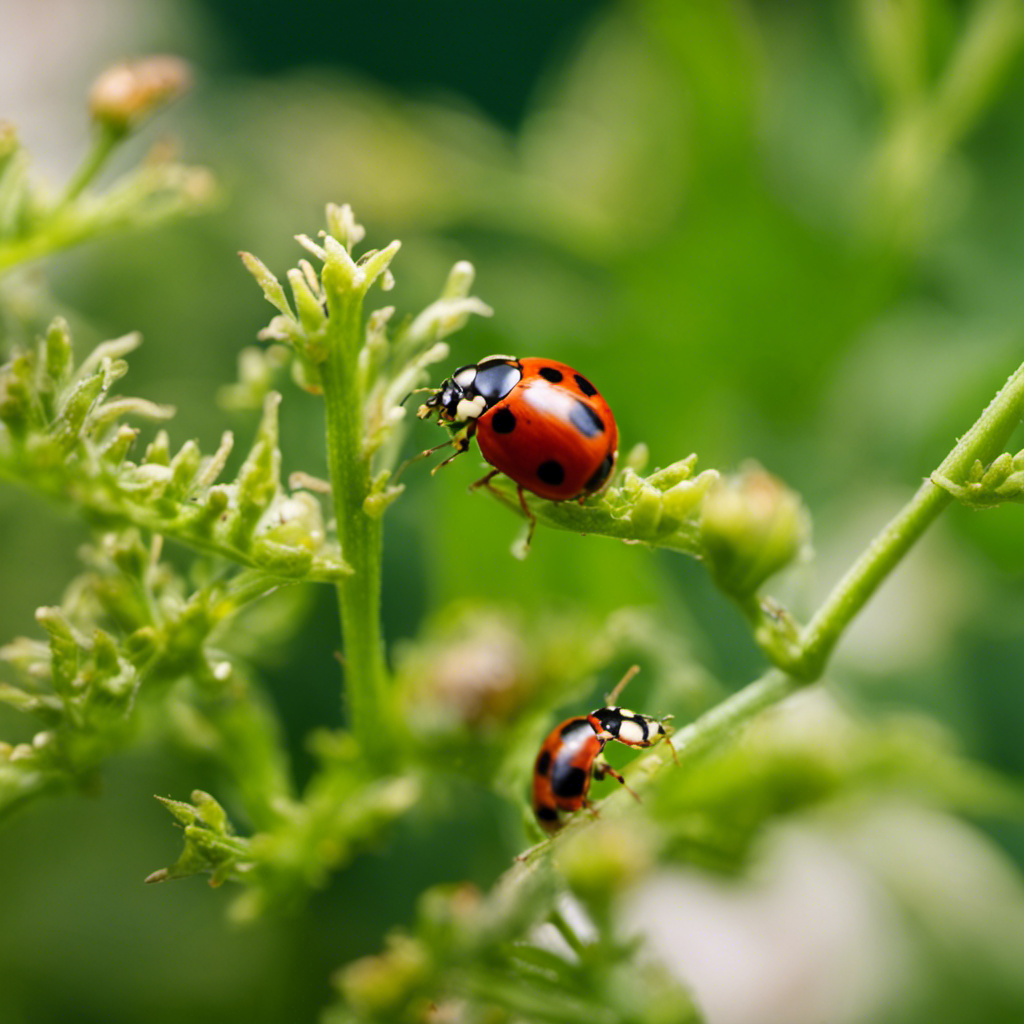
Continue the discussion from companion planting into biological pest control by incorporating natural predators to manage pest populations.
Biological pest control is a highly effective strategy for farmers and gardeners, offering numerous benefits. Instead of relying on harmful chemicals, this method harnesses the power of insects, birds, and beneficial microorganisms that act as natural enemies to pests. By introducing these predators into the ecosystem, a balance can be maintained between pests and their natural adversaries, resulting in reduced pest damage and increased crop yields.
One of the key advantages of biological pest control is its environmentally friendly nature. Unlike chemical pesticides, it doesn’t harm beneficial insects or contaminate the soil and water. Moreover, it’s a sustainable approach, capitalizing on the existing natural processes within the ecosystem. By reducing reliance on chemical pesticides, it also minimizes potential health risks for humans and animals.
Implementing biological pest control not only safeguards your harvests but also contributes to a healthier and more sustainable environment. By working with nature rather than against it, you can effectively manage pests while promoting biodiversity and ecological balance.
Organic Pesticides
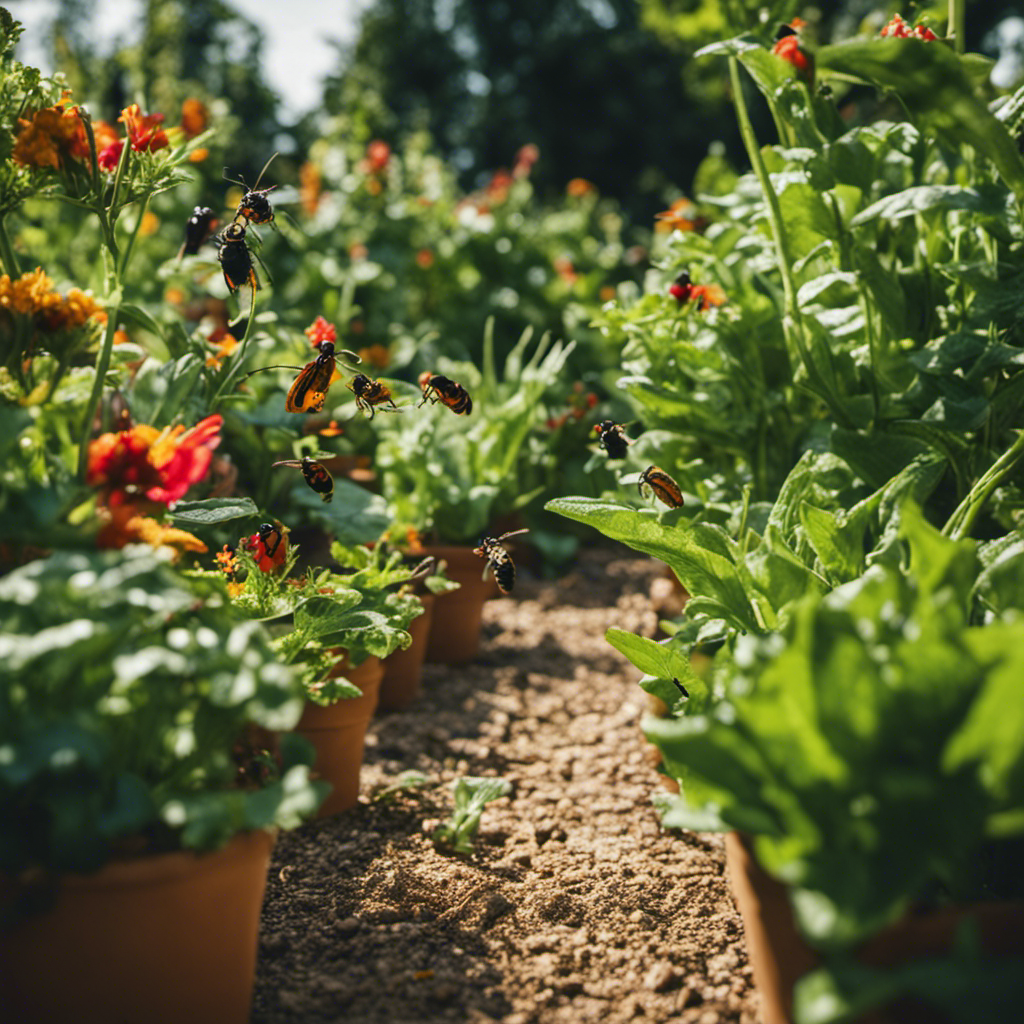
To effectively manage pests and protect your harvests, consider incorporating organic pesticides into your pest control strategy. Organic pesticides are natural alternatives that provide non-toxic solutions for pest management. These pesticides are derived from plant extracts, essential oils, and other organic materials, making them safe for both humans and the environment. By using organic pesticides, you can effectively control pests without the risk of harmful chemical residues on your crops.
Here is a table that highlights some commonly used organic pesticides:
| Organic Pesticide | Target Pests |
|---|---|
| Neem oil | Aphids, mites, and scales |
| Pyrethrin | Beetles, flies, and mosquitoes |
| Bacillus thuringiensis (Bt) | Caterpillars, mosquitoes, and beetles |
| Diatomaceous earth | Slugs, snails, and ants |
These organic pesticides offer effective control against a wide range of pests, providing you with a safe and sustainable solution for protecting your harvests. Incorporating these natural alternatives into your pest control strategy ensures the health and quality of your crops while minimizing harm to the environment.
Crop Rotation

Crop rotation is a sustainable agricultural practice that involves planting different crops in a specific sequence in the same field over time. This method helps to improve soil fertility and prevent the buildup of pests and diseases.
Crop rotation works by interrupting the life cycles of pests and diseases. Different crops have varying nutrient requirements, growth patterns, and vulnerabilities to pests. By rotating crops, you can disrupt the habitat and food sources of pests, making it difficult for them to survive and reproduce. Additionally, certain crops have natural pest-repellent properties, which can help in reducing pest populations.
In addition to pest management, crop rotation also improves soil fertility. Different crops have different nutrient demands, and rotating crops helps to balance soil nutrients. It also reduces the risk of nutrient depletion and promotes the growth of beneficial microorganisms in the soil.
Physical Barriers
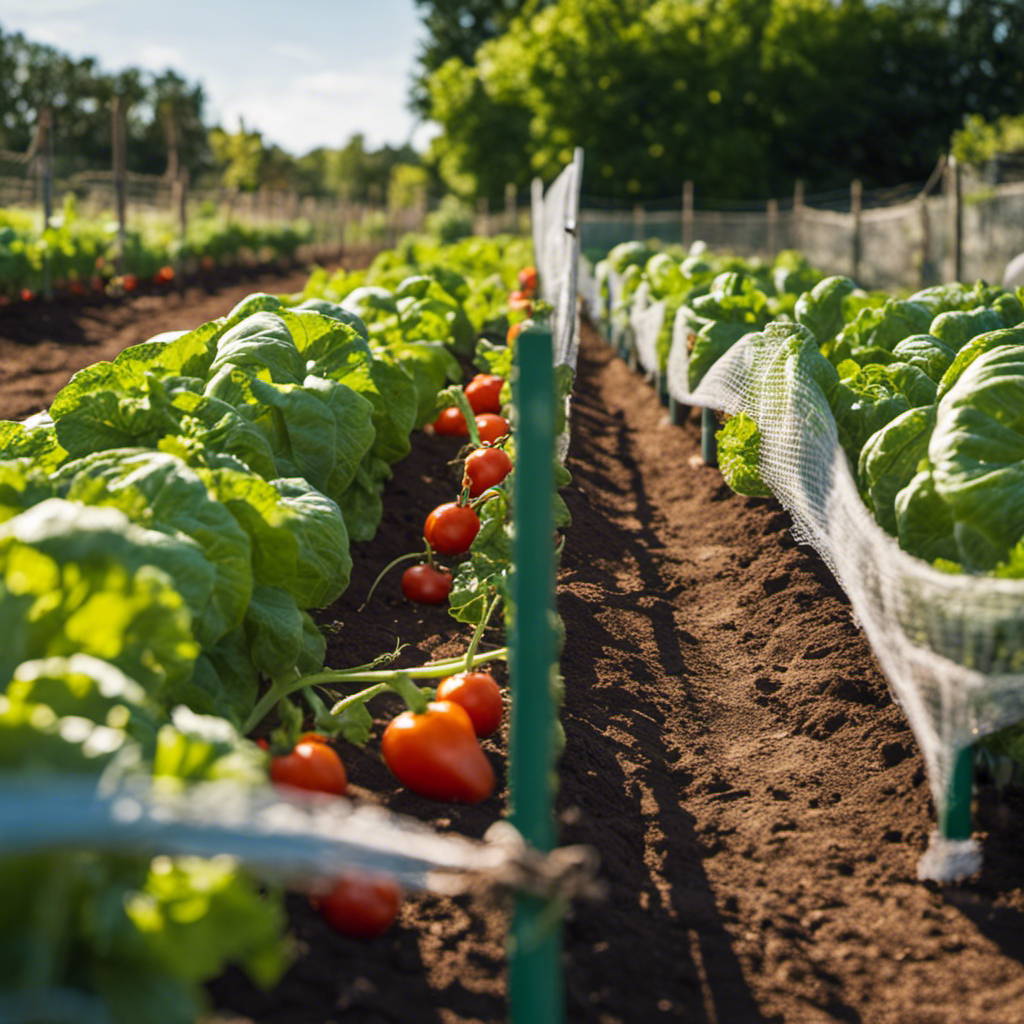
After implementing crop rotation, you can further improve pest management by using physical barriers to protect your crops.
Physical barriers are a practical and sustainable farming practice that helps deter pests from damaging your harvest. These barriers act as physical obstacles, preventing pests from accessing your crops and causing harm.
You can use natural deterrents like fences, nets, and screens to create these barriers. Erecting fences around your fields can keep larger pests, such as deer and rabbits, out. Additionally, using nets and screens to cover your crops can prevent insects and birds from reaching them.
Conclusion
Implementing these three environmentally friendly methods can greatly improve the health and productivity of your crops.
Companion planting, biological pest control, and organic pesticides offer effective solutions for pest management.
Additionally, crop rotation and physical barriers can further protect your plants.
By incorporating these methods into your farming practices, you can ensure a successful harvest while maintaining the natural balance of your ecosystem.
Remember, prevention is key to avoiding the need for extensive remedies.
